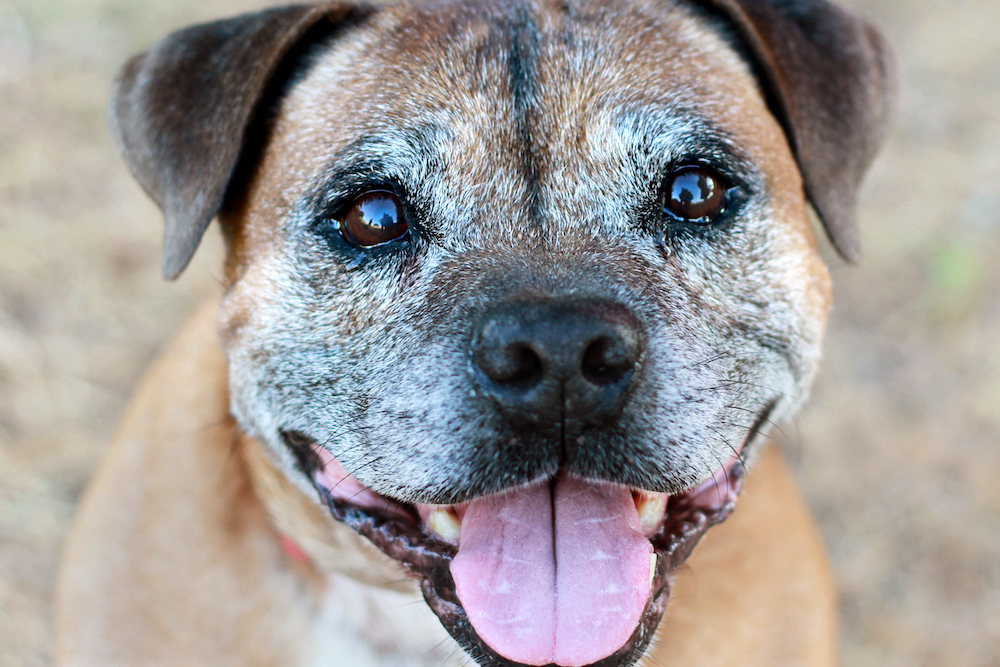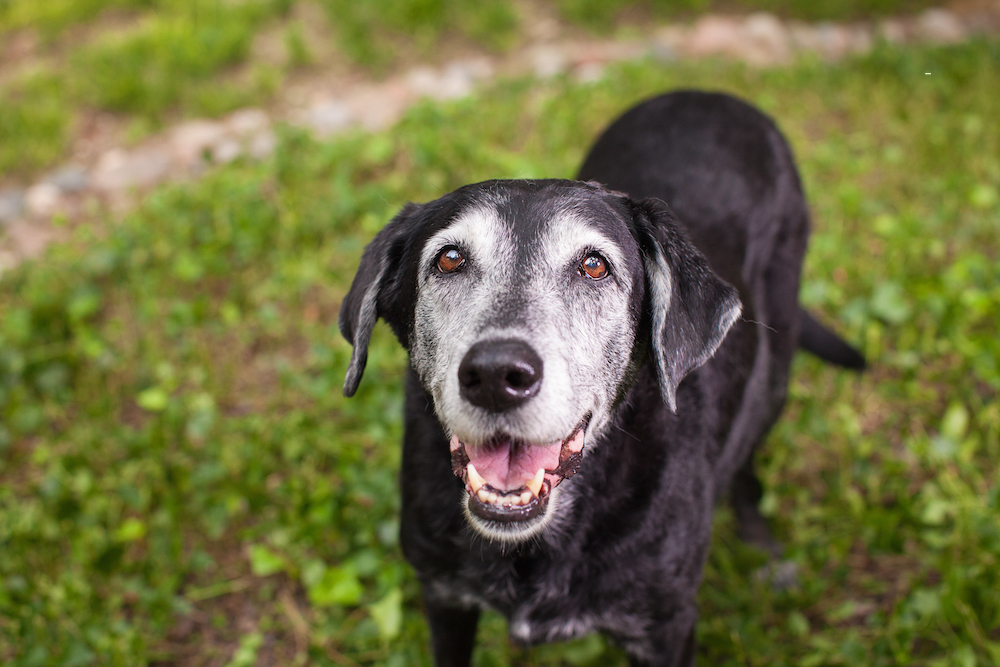Whether you’re a human or a dog, your body and needs may change as you get older. And some senior dogs end up losing body mass or losing interest in their food, putting them in a position where they need to gain weight. But there is no universal rule for how to feed a senior dog, or even a simple definition of which dogs are seniors. Here are some tips to consider if you believe your older dog may be underweight, and advice for feeding an older dog who isn’t eating, or needs to gain weight.
Your senior dog may not need to put on weight
Sometimes a dog who appears thin to their owner is actually in a healthy body condition. Plus, senior dogs who reduce their activity levels may have lower calorie needs than they used to. In most cases, a dog is underweight if you can clearly see all of their ribs. Find out more about measuring your dog’s Body Condition Score from our complete guide to the subject.
Aside from your dog’s measurable body condition being too lean, you should also be aware of shifts in their appearance and behavior. If your dog suddenly loses weight even though you haven’t changed anything, if they become less energetic out of nowhere, if they lose their appetite, or if you just have questions about their body condition, have them examined by a veterinarian.
It’s important to rule out medical problems
Weight loss or loss of interest in food could be directly related to a whole host of medical issues (including dental disease, which is all too common in dogs) and the best way to rule that out is by visiting a vet. They can offer you peace of mind about your dog’s health—and, if your dog does have a condition that requires treatment, work with you on a plan to heal or manage it. Particular medical problems may call for particular changes to a dog’s diet, and dogs with multiple conditions may present trickier challenges as their guardians and vets work to feed them the right mix of nutrients for their long-term wellbeing.

You don’t automatically have to change a dog’s food just because they’re a senior
While many dog foods are labeled with the word “senior,” in general there is no reason that senior dogs have to eat them—it’s worth noting that the Association of American Feed Control Officials (AAFCO), the organization that sets nutritional standards for pet food, has no official nutrient profile for senior dogs. Fresh recipes from The Farmer’s Dog are formulated by veterinary nutritionists to be complete and balanced for all life stages, and many of the dogs we feed are well into their golden years. So if your dog is doing fine on their food, don’t assume that age on its own is a reason to change anything.
But changing foods can have its merits
Thriving senior dogs can continue eating the same food they already enjoy. But there are times when a change in diet can benefit older dogs. If one myth of feeding an older dog is that you have to switch foods the minute they hit senior status, its twin misapprehension is that at a certain point it’s “too late” to switch their food. After ruling out health issues, if your senior dog is losing weight because they’re not eating their current food, consider switching their food to one with healthy, fresh protein as a main ingredient.
As dogs get older, their bodies’ systems may slow down, so it’s crucial to provide a balance of the right nutrients in the right ratios. One outdated, yet enduring, belief about senior dogs is that, across the board, they need significantly less protein and fat than adult dogs.
While each dog is different and ages differently, as a rule, unless your dog has a serious condition requiring protein restriction, such as advanced renal disease, reducing protein is not recommended for a healthy senior. In fact, protein is especially important for senior dogs.
The quality of protein is also important to seniors whose bodies may not be functioning with the same efficiency as younger dogs. High-quality, human-grade meat that is lightly cooked provides highly digestible protein for aging bodies.
“If their needs change, there’s no reason not to switch even a geriatric dog’s food. Even the oldest dogs can benefit from a boost in nutrition and more digestible food.” —Board-certified veterinary nutritionist Dr. Joe Wakshlag, DVM, PhD, DACVN.
Fresh, whole food provides other benefits that are relevant to seniors. It’s soft and easy to eat. And—because it contains more moisture than dried, heavily processed pellets—it helps keep your dog’s body hydrated, aiding digestion and elimination. And a pre-portioned plan can make it easier to give your senior dog precisely the right number of calories each day.

Dogs may eat more of a food if they like it more
It’s a simple idea, but it’s true—if your dog seems to have lost interest in their food, and you and a vet have gone over possible medical and behavioral explanations with no luck, you may get results by giving them more appetizing food. We’ve found that many “picky eaters” have developed more of an appetite when they’ve switched to a fresh diet.
It’s not only about weight
In addition to a Body Condition Score, a vet can assess your dog’s Muscle Condition Score. Sometimes a dog who is not underweight can still lose muscle mass, and that can be detrimental to their health. Depending on the reason for the loss of muscle, it may help them to eat more protein or have the protein in their diet be more digestible. Fresh, lightly cooked meat fits the bill on that front.
You’re not, and shouldn’t be, in this alone
Every dog is different, and every dog ages differently. If your dog has lost weight, or their behavior has changed, you should trust your concern about that and look into it. But you don’t have to go without support—a veterinarian can help you sort through complex questions about your dog, and lend a hand as you make decisions about how to keep them healthy.
The post What To Feed a Senior Dog for Weight Gain appeared first on The Farmer's Dog.
Comments
Post a Comment